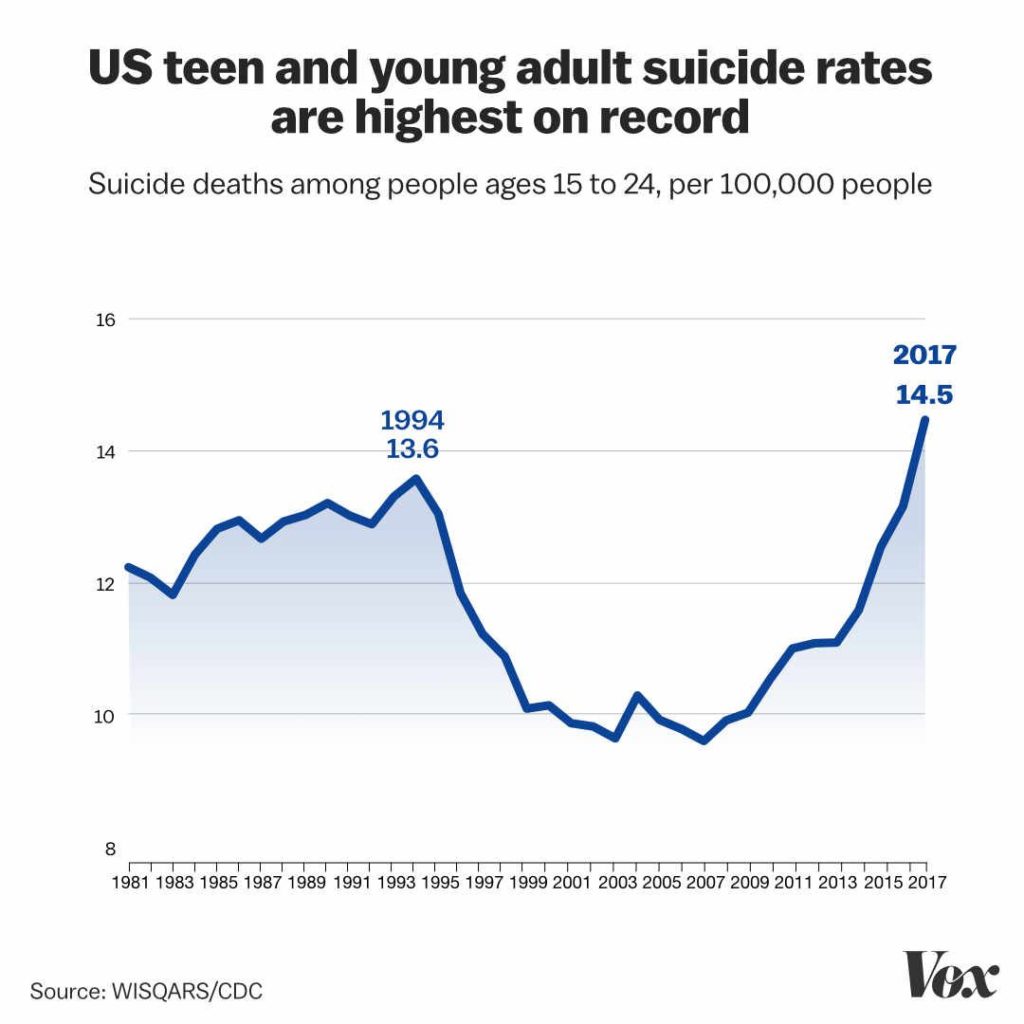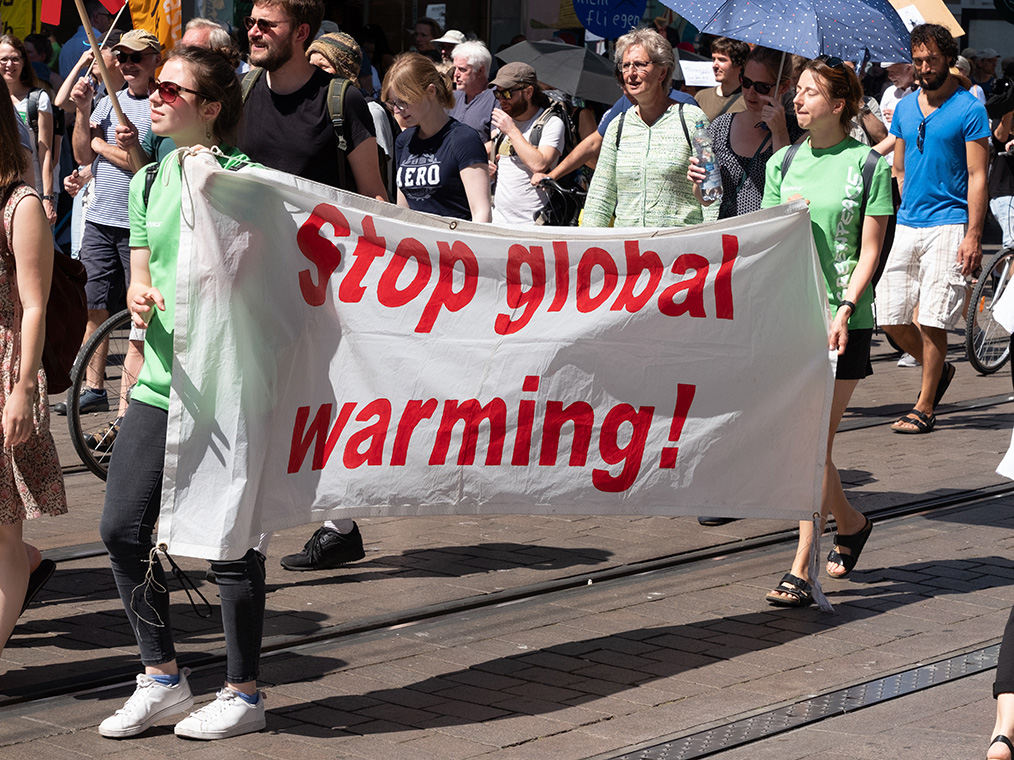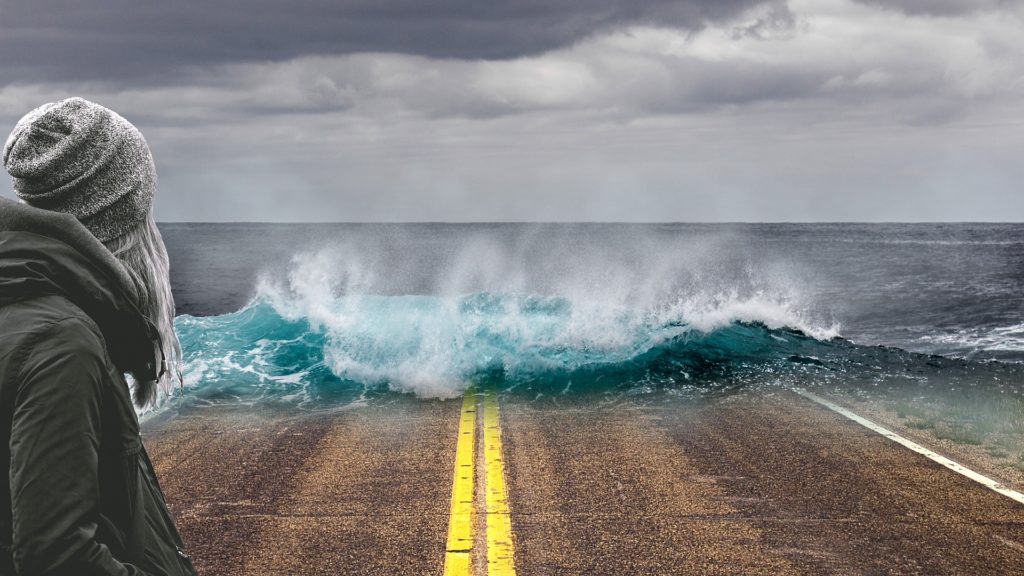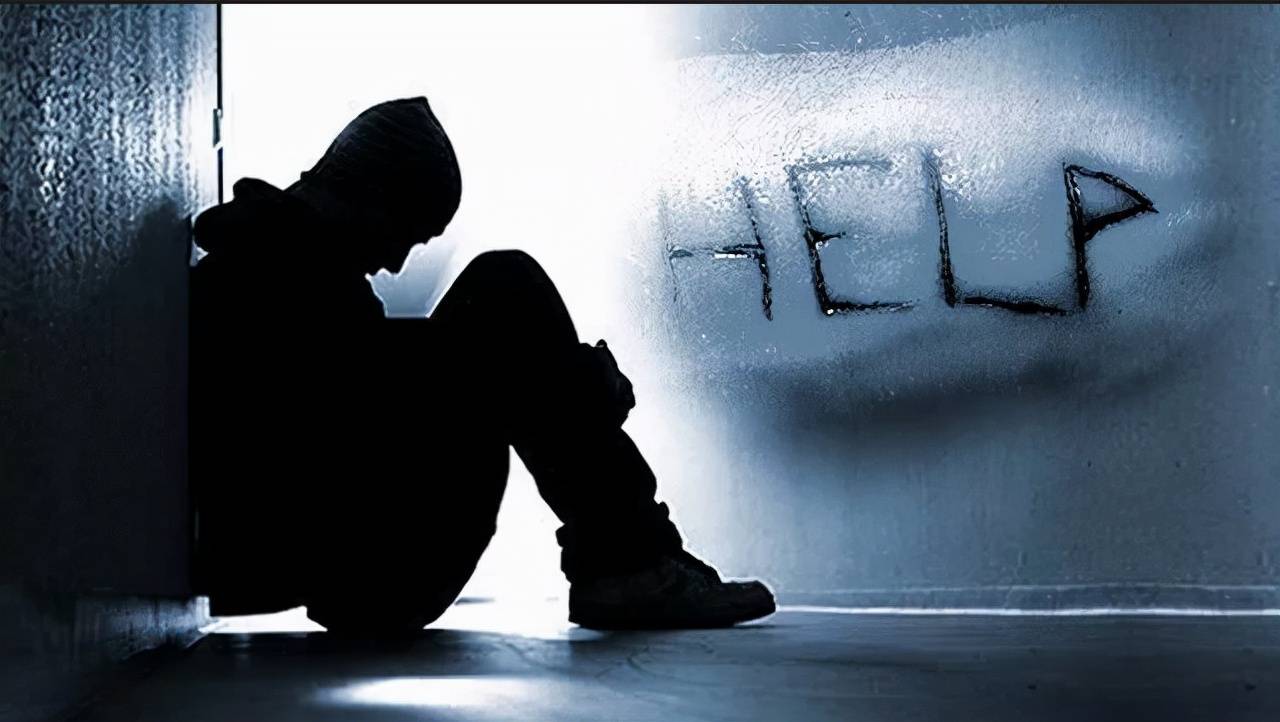
Gen Z suicide rates have climbed steadily since 2007, particularly among young men.
The End Times are upon us.
This is the consensus of people across the political spectrum. The human race, either through spiritual depravity or indifference to the natural world, is marching off a cliff. Though the Left and the Right don’t agree on the mechanism of our demise, they agree we’re careening toward annihilation.
Is it any wonder that our collective mental health is worsening or that the rates of suicide are so high, especially among the generation that is reaching adulthood just in time to watch the world fall apart? The mental health crisis among Generation Z is so great that suicide has become an “epidemic.” In 2010, it became the 2nd leading cause of death for Americans aged 10 to 19, and rates have only continued to rise.
Generation Zers aren’t committing suicide only due to fears of climate catastrophe political upheaval. Beyond the myriad underlying causes that have always been linked to youth suicide – abuse, mental illness, family strife – Generation Z is the first generation to be raised entirely in the internet age. From bullying and harassment to self-esteem and body image issues, social media amplifies the worst parts of adolescence.
Growing Up in the End Times

The reality is we’re all subjects of the most perverse social experiment ever conducted. For all its amazing uses and potential, the internet is clearly having a profound effect on the species. We celebrate how it allows us to connect with people all over the world and learn new things, but in doing so, it also fills our eyes with horrors we aren’t adapted to handle.
We can see real-time, uncensored images of war – brutal bombings, slaughtered civilians, traumatized Ukrainians – all while sipping our morning coffee. Acts of police brutality are no longer hidden; violent confrontations play on repeat as we scroll through our feeds. Perhaps in the long term, this unflinching window into reality will make us a more empathetic and tolerant species. But for now, it’s taking a toll on all of us, and particularly on the youth.
According to a CDC study, from 2000 to 2007, suicide rates in America held steady. However, from 2007 to 2017, the suicide rate for people 10 to 24 rose by over 50%, and the increase was even more significant from 2013 to 2017.
Why are suicides increasing?

Looking around the world, two trends seem incontrovertibly linked: people’s pessimism about the future and the rising number of suicides.
Climate anxiety is real. Psychologists recognize “eco-anxiety” as an actual condition, and they’re increasingly seeing it in children and teens. While many teen suicides are not the exclusive result of eco-anxiety, the prospect of being an adult in a climate collapse-ravaged world is likely a contributing factor.
More than likely, the leading cause of these deaths is rooted in the universal miseries of adolescence. They are magnified by social media but are largely the same fears and pains that have caused adolescent self-harm for generations.
However, for American Gen Zers, the backdrop to these struggles is a world in which they will have fewer economic and social opportunities than their parents; they are seeing more significant wealth disparity than at any time in the last 80 years; and they will witness millions of people suffer due to human-exacerbated natural disasters. Feelings of hopelessness are a natural reaction.
In the Eye of the Storm
We’ve taken the day-to-day anxieties of being human and placed them in a beehive. It’s bad enough when our stressful conditions lead us to lash out at innocent bystanders, but far more often, the victims are ourselves. From alcoholism to cutting to drug abuse, we often turn our anxiety and depression inward. Suicide is the ultimate manifestation of this.

We live in anxious times. Yes, by and large, our material existence is better than it was for generations past. However, while some circumstances are better for younger people than they were for their parents and grandparents, that doesn’t mean they’re living in a utopia. And the fact is, they are facing challenges that we never had to face, both in terms of technology-related hardships and climate disasters. Older generations ignored environmental destruction, and now the youth suffer the consequences.
Youth suicide is not new. But it is worsening, and like so many other problems that humanity is facing, a significant accelerant is human-caused climate collapse. We’re living in a pressure cooker, and our kids feel that pressure the most.
If you or someone you know is experiencing suicidal thoughts or a crisis, please reach out immediately to the Suicide Prevention Lifeline at 800-273-8255 or text HOME to the Crisis Text Line at 741741.

